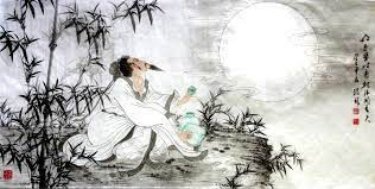Archive for October, 2022
31 Oct 2022


Eratosthenes explains the urban liberal elite.
It’s got to do with living location and population density. Some of us congregate in tightly packed cities, others of us spread out over the sparsely populated farmland. A high population density offers an option of hiding behind others, to those who need such a thing. To the substandard performers. The softies.
The blue-state fantasy is that wisdom should proliferate outward, from the tightly packed cities, invading the sparsely populated farmland. This isn’t evident to the casual observer, because there’s too much emphasis placed on what should be taught. The truth is that the liberals don’t care. They want to do the teaching, they want us rubes to do the learning. That’s their wish. It’s a wish that can never come to fruition, and that’s because of the way people are made. When the population density is high, and it becomes possible to play piss-poor because you didn’t practice enough, hiding behind others, pretending you know what you’re doing when you really don’t — that’s what people will do. You can’t do that out in the farmland. It’s not merely a matter of being happy alone, or being tough or big or strong. You have to know what you’re doing so you don’t need to hide behind anyone else. It’s a process of gestation. An organism that gestates in a tough environment, reaches maturity with a hardness that’s missing from things that grow up in kinder, more forgiving environments. Since this attribute of kindness to the growing organism and forgiveness of any missteps, is linked to pretending, there is a truth-fiction dichotomy linked to the hard-soft dichotomy.
They’re soft. They hide behind each other.
We’re hard. There are consequences involved in our mistakes, so if we don’t know what we’re doing, we go get help. And then we figure out what we’re doing before we do anymore.
They pretend. They recite talking points they don’t really understand, like “Sure there was fraud, but not enough to change the results,” or “No human is illegal” or “We’re here. We’re queer. Get used to it.”
We don’t pretend. We can’t. And we can’t compress the work we do into a slogan.
They don’t define…really, anything.
We have to define everything. If we don’t, someone gets hurt.
Big-city-center denizens who pretend to know what they’re doing when they really don’t, hiding behind others, can’t invade the prairie, orchard or farmland. They may want to, but they’re not suited. It’s not because they’re stupid and we’re smart, or because they quit too easily and we’re stubborn. It’s the hard-and-soft thing, period, full stop. It would be talcum penetrating diamond. The softer material is going to have to yield. It’s physics. How do you argue with physics?
That’s the inherent futility of liberalism, in America, in a nutshell. Soft people who don’t know what they’re doing, pretending to know everything, seeking to impose their way of doing things on others who know what they’re doing. Softness trying to invade hardness. Every time it doesn’t work, and it never will, they get more and more grumpy and upset. Then they try to use their anger as an ancillary tool, to do the invading they’ve already learned they can’t do. Now you understand American politics. This is why we’re being told, with some legitimacy, every two years that “This election is the most important one of our lifetime.” It’s the liberals trying, once again, to invade the hardness with their softness, just like Sisyphus in the afterlife struggling to push his boulder up the mountain, only to see it roll back down again. That’s their struggle, and ours. It lacks even the faintest prospect of success, but they lack the understanding to realize this, so around and around we go.
Their champion is a senile old man who doesn’t know where he is, who likes to eat ice cream.
RTWT
HT: Vanderleun.
I know what he means. I grew up in a working class coal town. Years later, as an adult, I was arguing Foreign Policy with an Amherst grad who’d grown up in cushy Ridgefield, CT. “You have to stand up to bullies!” I argued, “Bullies are always cowards, and crumble when faced with opposition. And, if you don’t stop them, they will just go on and on and do worse and worse. The world is just like your boyhood schoolyard. ” “There were no bullies at our school.” he replied.
I was nonplussed. I couldn’t imagine a childhood with no bullies. But it was obvious that, if such a thing actually existed, a childhood that sheltered would certainly lead to a warped and naive view of life.
Maybe he’s right. Maybe they never met any bullies because they were successfully hiding behind one another.
30 Oct 2022


The Good Citizen summarizes the news story of the week.
Tonight at eleven, a spooky story of political rage and right-wing violence has shattered the moral fabric of our completely healthy and stable country.
Husband of the Speaker of the House and third in line to the throne of Oligarch servantry, undefeated stock market picker, part-time drunk driver with unlisted male companions, and lover of Do-It-Yourself home improvement work was assaulted at Speaker’s Manor in the early hours Friday morning.
Run footage of crime tape with FBI agents on the scene.
Paul Pelosi was doing urgent home improvement work at 2 am in his underwear at Speaker’s Manor when an Ultra MAGA intruder smashed through the back patio window of the Speaker’s Manor with a hammer.
The intruder was apparently yelling, “Where’s Nancy?” in reference to Paul’s wife Nancy Pelosi who was out of town.
Paul Pelosi was able to distance himself from the intruder by saying he needed to use the bathroom. The intruder was attempting to tie him up with leather and chains Paul had purchased as part of his home improvement project, but let Mr. Pelosi leave anyway to relieve himself.
From the bathroom, Paul found his phone, where he, like all people living in mega-mansions keeps his main phone charger. From there he was able to phone the police. During the call with the 9-1-1 dispatcher, Mr. Pelosi spoke in codes.
When police arrived they found both men in their underwear holding hammers. At that moment the Ultra MAGA intruder grabbed Mr. Pelosi’s hammer and hit him over the head, cracking his skull. Police quickly subdued the assailant and took him into custody where he definitely won’t be committing suicide at any moment.
The Ultra MAGA assailant has been identified as a professional nudist, drug addict, homeless psychotic, and blogger who lives across the bay in Ultra MAGA country, Berkeley.
We’re looking at a live shot of the intruder’s home now, as you can see the Ultra MAGA paraphernalia with the standard rainbow flag with marijuana leaf in the yard and a Black Lives Matter sign in the house window. The suspect lives in that broken down white school bus in the driveway that says You are beautiful, a common living arrangement for Ultra MAGA violent far-right extremists.
We will have more facts about this story as they become available.
RTWT
29 Oct 2022


Dennis Zhou reviews Wong May’s In the Same Light: 200 Tang Poems.
In 755, the Sogdian-Turkish general An Lushan rebelled against Emperor Xuanzong of the Tang dynasty after a dispute with a cousin of the emperor’s favorite concubine. Within a year, the general had captured the eastern capital of Luoyang and declared himself emperor; the next year, his forces seized and sacked the capital of Chang’an (present-day Xi’an), then the most populous city in the world. Although An—blind, crazed, and so obese that he was said to crush horses to death under his own weight—was assassinated in 757 by a eunuch conspiring with his son, the rebellion continued for several years until finally being put down by the imperial army in 763. As many as 36 million people were killed or displaced during the insurrection—three-quarters of the population. The Tang dynasty never fully recovered, and after suffering another uprising in the ninth century, China descended into civil war, ending what many consider its Golden Age.
This era of war and famine coincided with an immense flowering of calligraphy, painting, and poetry. In the eighth century, Chang’an had become a bustling, cosmopolitan city with countless canals, parks, teahouses, and monasteries and a diverse population that included Uighurs, Turks, Japanese, and Koreans. With the imperial examination system, which recruited bureaucrats on the basis of their knowledge of classical literature and philosophy, poetry was elevated to a stature that it has rarely, if ever, reclaimed: a class of scholar-officials governed the empire, and no one could rise in the ranks without the ability to compose an elegant quatrain or a witty couplet.
The Tang Dynasty, which lasted more than 270 years, produced China’s greatest poets: the Daoist drifter Li Bai, the Confucian poet-historian Du Fu, the painter-poet Wang Wei, the Buddhist hermit Han Shan, and many others. Their lives were marked by unceasing political turmoil. Refugees and fugitives, they spent their years wandering from place to place, falling in and out of imperial favor and all the while drinking, singing, and writing. Their poetry—for the most part regulated verse comprising linked couplets of between five and seven characters—is what we think of when we think of Classical Chinese poetry.
The astounding influence that Chinese poetry in translation has had on the English language throughout the 20th century—from the Modernist, Imagist revolution of Ezra Pound’s Cathay (1915) through its mid-century, counter-cultural incarnation by Gary Snyder, Kenneth Rexroth, and others—can be traced to this ragtag assortment of drunkards, hermits, and exiles. Very few collections, however, situate the Tang poets fully within their political and historical context, drawing out both the urgency and stakes of their verse. Many anthologies… simply follow the model of Three Hundred Tang Poems (1763) compiled by the Qing scholar Sun Zhu, which for many decades remained the standard text. In the Same Light (The Song Cave, 2022), translated by the Chinese-Singaporean-Irish poet Wong May, does something different. Collecting 200 poems by 38 poets, Wong May promises to find parallels between their time and the present and, in so doing, update them “for our century.” To do this, she excavates her own story and its resonance with those of the Tang poets.
RTWT
29 Oct 2022


And, oddly enough, no one noticed, the Guardian reports.
A painting by abstract Dutch artist Piet Mondrian has been hanging upside down in various museums since it was first put on display 75 years ago, an art historian has found, but warned it could disintegrate if it was hung the right side up now.
The 1941 picture, a complex interlacing lattice of red, yellow, black and blue adhesive tapes titled New York City I, was first put on display at New York’s MoMA in 1945 but has hung at the art collection of the German federal state of North Rhine-Westphalia in Düsseldorf since 1980.
The way the picture is currently hung shows the multicoloured lines thickening at the bottom, suggesting an extremely simplified version of a skyline. However, when curator Susanne Meyer-Büser started researching the museum’s new show on the Dutch avant garde artist earlier this year, she realised the picture should be the other way around.
“The thickening of the grid should be at the top, like a dark sky,” said Meyer-Büser. “Once I pointed it out to the other curators, we realised it was very obvious. I am 100% certain the picture is the wrong way around.”
RTWT
In Evelyn Waugh’s Brideshead Revisited, the following exchange takes place:
‘Charles,’ said Cordelia, ‘Modern Art is all bosh, isn’t it?’
“‘Great bosh.’
“‘Oh, I’m so glad. I had an argument with one of our nuns and she said we shouldn’t try and criticize what we didn’t understand. Now I shall tell her I have had it straight from a real artist, and snubs to her.’”
26 Oct 2022


Go to a bookstore these days or read Lithhub or the latest New Yorker or Paris Review and you will soon begin to think that literature consists of the life narratives, fantasies, and collected grievances of female neurotics, homosexuals, and oppressed persons of color.
As Aristophanes, at The Federalist, describes: the publishing industry has overwhelmingly gone Woke.
Even big-name authors now admit the publishing industry has gotten intolerably woke and hostile to men — it’s time for readers to fight back.
Joyce Carol Oates is a fixture in American letters — she’s won the National Book Award, two O. Henry Awards, the National Humanities Medal, the Jerusalem Prize, and she’s been nominated for the Pulitzer five times. She taught at Princeton for 36 years, and is, of course, an outspoken Trump critic. A Google search for “Joyce Carol Oates” and “feminist” yields more than half a million results.
And even she thinks the publishing industry has become intolerably politically correct. On Twitter, she recently observed, the “category of straight white males is the only category remaining for villains & awful people in fiction & film & popular culture.” Oates isn’t alone in observing the problem — in June, ubiquitous author James Patterson, whose potboilers have sold more than 400 million copies, said white male writers now face “another form of racism” in the woke publishing industry, before he was bullied into backtracking on his comments.
Of course, if you’ve set foot in a large bookstore recently, what Patterson is saying has obvious merit. On a recent trip to Barnes & Noble, a friend actually took photos and counted up the books on the six new fiction shelves displayed up front. Male authors made up less than 25 percent of the nearly 200 books displayed in the front of the store, and obviously, the percentage of men who were white and/or heterosexual was notably smaller than that.
Oates and Patterson are only now saying what many men with literary ambitions have long known. Iowa Writers Workshop graduate Alex Perez recently gave a scorched-earth interview to the Hobart Literary Journal where he discussed how male-centric literature was being deliberately shut out of publishing. During the interview, he had some choice words for the woke and disproportionately female gatekeepers of the industry:
These women, perhaps the least diverse collection of people on the planet, decide who is worthy or unworthy of literary representation. Their worldview trickles down to the small journals, too, which are mostly run by woke young women or bored middle-aged housewives. This explains why everything reads and sounds the same, from major publishing houses to vanity zines with a readership of fifteen. The progressive/woke orthodoxy is the ideology that controls the entire publishing apparatus.
Almost to prove his point, most of the editors of the Hobart Literary Journal resigned in protest over the decision to publish Perez’s interview. As for Perez, he’s mostly given up on his literary ambitions to write cultural and political commentary for publications that don’t neatly hew to center-left orthodoxies, such as Tablet.
The people running publishing have fully confused their profession with their secular religion. Perez isn’t just right that “everything reads and sounds the same,” but the greater crime is that when literature is culturally and politically homogenized, greatness becomes an outlier. The next Cormac McCarthy could be languishing because they were too busy greenlighting “Anti-Racist Baby.”
RTWT
HT: Karen L. Myers.
/div>

Feeds
|










